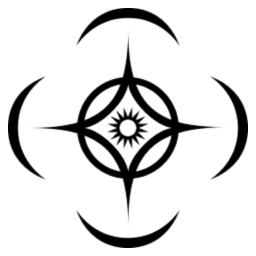

Without getting all Agent Smith about it, yes, humans are an ecological disaster. I’m not trying to throw charged what-ifs back and forth. We solve the problems we can. Can you clarify what you’re saying? I agree that no animal should be killed by humans, but I also recognize that we must work with the solutions we have. Are you suggesting that we stop cullings and allow overpopulation to happen?
I strongly agree that hunting should not be a sport. I also believe that if we’re going to kill an animal, we should at least use the corpse to feed back into the ecosystem, and I don’t begrudge those that eat the things they hunt, if necessary. Many people subsist off hunting to survive, and while I disagree with the concept of hunting another animal for food, I won’t suggest that they starve, especially when they’re filling a vital ecosystem role. If we don’t need the food though, we should not be hunting animals for food. I don’t know if my opinion is well founded enough to defend the position that if an animal is killed, tragically necessarily, for culling, it should not be eaten. I believe that to be true, but I can’t defend that position with anything but my personal feelings and beliefs. On some level, I understand the argument that if an animal must be killed, then it’s wasteful to not use the meat. Regardless of either argument, I strongly disagree with trophy hunting, and find any hunting for sport abhorrent.
I hope you can see the nuanced nature of my position. I’m not trying to play devil’s advocate or be contrarian. I have a well-formed belief from my experiences, and I am trying to argue my position, and don’t think you have to agree with me, nor do I expect you to. I do not see a large scale alternative to culling at the moment. I think those types of alternatives are being pursued by some in the industry, but the scale is small. I also do not believe it’s an option to allow populations to grow uncontrollably. I believe allowing that to happen would be as morally reprehensible as hunting for sport, as it’s neglecting a duty we have to sustain an ecosystem that we damaged. I am open and interested in any and all alternatives to culling, but I’ve heard none that haven’t been tried or that haven’t been able to succeed at scale.






I agree that killing should be the absolute last resort, though I disagree that killing humans for population control should ever be in consideration. There is a difference between taking the role of a natural process, the predators that have been depopulated, and killing humans for population control, which have no natural predators. We also never need to consider that as an option, because as you pointed out, we can’t distribute pills and condoms to deer, but we can to humans. We shouldn’t be thinking of things in terms of equality, but equity. Humans can be managed through effective legislation and education. Deer cannot, and need much more direct intervention. I look forward to the day that culling is no longer necessary, as it’s a brutal and unfortunate necessary evil. And for the purposes of demonstrating that it’s not specifically about species to me, yes, I believe that if the only way to save the global ecosystem was a rapid depopulation of human beings with no alternatives, it would be right to do so, regardless of how impossible that hypothetical situation is.